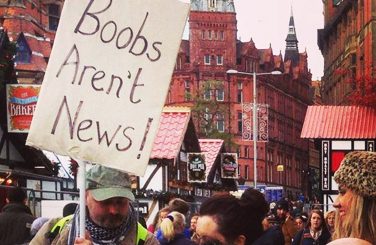Every time a news headline is created, social media is flooded with opinions based on varying levels of factual basis. Whilst freedom of speech is enhanced through social media and undoubtedly encourages individuals to express their opinions, there is always a heightened risk of bias, sensationalisation, and most of all uninhibited hate speech as narratives remain unchecked and unchallenged. Join E&M editor and author Isla on her journey to find out deeper aspects on it.
On September 8 2022, Queen Elizabeth II passed away at 96 years of age. When this happened, I received a notification from every news app on my phone. British news outlets such as The BBC and The Guardian were broadcasting live updates as it happened, but to my surprise foreign and international news outlets such as CNN also published a live feed. Although reigning for an impressive number of years, and standing as one of the more culturally significant monarchs, I did not deem this to be reason for international grievance.
Whilst these news sites were flooded with Live Update pages, upon opening social media the prevalent perspective stood in stark contrast. On Instagram, post after post described this news as the deserved death of a bloodstained crown, the downfall of a genocide criminal and so on. I suddenly questioned whether along with mainstream news outlets, I had completely looked past such inhumanity in the name of my culture. In fact, most of the users I saw posting criticism on Instagram had no association to Britain, so a more objective perspective on this.
In an attempt to dissociate myself from any cultural bias I had inherited, I read up on the factual basis to these crimes online. In fact, Queen Elizabeth II was the reigning monarch at the time of the decolonisation of The British Empire. Because of this, despite the limited involvement of the monarchy in British political affairs, these acts were in her name.
Other examples provided sufficient reason to criticise the history of the nation and political figures involved, but I still found that the structure of the monarchy was the problem: focusing on her being a war criminal on social media detracted from the systemic issue at hand and placed individual blame on one individual in a problematic network.
Social media allows for anonymity, something which would not be found in physical conversations. In countries with free speech and limited internet censorship, it is not surprising that there is an abundance of hate speech and opinions which otherwise would be attributed to a small minority of individuals. Although stereotypically this problematic aspect of social media is attributed to extreme right wing opinions, it is just as common to find harmful speech by individuals pursuing progressive social aims, criticising others for not doing the same. Another debate surrounds whether this freedom of discourse on social media does more bad than good, but here the focus is on the cultivation of a hateful environment.
With communicating online comes a lack of personal responsibility and empathy: claims about people one has never met, actions we know very little about and so on can be quickly typed up and sent into a hypothetically boundless digital world. Whilst such claims in real life would be questioned by others, encouraging discussion and critical thinking, online fewer people engage in what would seem to be an inconsequential online debate. I myself did not reply to these posts to understand why they see Queen Elizabeth II as more personally responsible than systematically. The digital distance that gives users the confidence to post also applies to the readers: nobody feels personally responsible to question the views they find online, as each post alone seems uninfluential on mass opinions.
This leads to a final and possibly most important problem with this rise in hate speech due to social media: few people would go to the extent to question a view that they see online, especially one which is the predominant opinion in circulation, and may quickly internalise this perspective as fact. This can be seen in countless other events where the news headlines do not correlate with those in the uncensored, and mostly unresearched digital world. Whilst this plays a crucial role in balancing perspectives and identifying the bias in news outlets, sometimes it can do more harm than good in spreading hateful attitudes.
If anything, social media narratives were able to draw attention to the issues surrounding the monarchy, the bias found in mainstream media and other factors contributing to a lack of awareness around colonialism and the way it draws on today. However, extreme attitudes can incorrectly frame issues and detract from these real problems at hand. Social media is an irreplaceable way to give a voice to those who wouldn’t otherwise speak, just as long as they don’t shout louder than everyone else.
Top picture by PhotoMIX-Company on Pixabay





